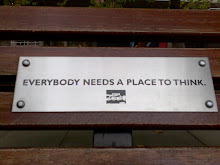
It was a good day. I ran two sessions today. Both were successful, from my perspective. Of course there are always points for improvement (and I definitely take them onboard seriously) but in terms of the objectives I had set for each session, I was quite pleased at how they went.
My first session was a speech intelligibility group, with three clients. In this group, there are two gentlemen - one is 73 years old, the other is 38 years old. I also have a lady, who is 50 years old. All of them had a stroke and consequently now have varying severity of language and speech disorders. As you might know, for most people whether you are right or left handed, the left side of our brain is the side that processes language and speech. All three of them encountered a stroke on their left hemisphere. Because their language and speech processing systems were damaged, they have both aphasia and speech apraxia.

Both conditions are probably very unfamiliar to most people, unless you have them or have family members/friends who have them. Just to set the context, maybe I should explain a bit about the conditions most of my clients have... Aphasia is a language disorder that affects every aspect of language - understanding of spoken words, talking, reading and writing. E.g. my client might have trouble spelling at a one-word-level; or difficulty comprehending what someone is saying. Or reading might be very effortful at a paragraph level. The key thing to understand here is that aphasia is not just a difficulty in using language but it is also a difficulty in thinking. We might not realise this but we usually think in terms of language. Some of my clients reported that their ability to plan/reflect/know what they want to say or are saying is diminished. Their mind becomes somewhat 'blank' - languageless in an isolating sense. Almost as thought someone erased the blackboard in their minds. Or when someone says something to them, it simply doesn't quite register or click in their minds.

Speech apraxia is a difficulty in planning and sequencing speech sounds. It is due to brain damage in the speech motor area. E.g. my client might say 'loung' instead of 'young', 'buflaytter' for 'butterfly', 'hhhhhandy' for 'handy'; 'defli' for 'definitely'. People with apraxia have difficulties initiating speech and in controlling sounds within words. Errors are very unpredictable. One moment it might be a bit better, in another moment, the sounds might not come out at all. E.g. sometimes if they want to say 'vest', the 'v' sound just doesn't roll out exactly when they want them to. But when they are not thinking about producing that sound, or if they are not trying hard to say that sound, the 'v' in 'vest' might come out smoothly and clearly.

As you might imagine, aphasia and apraxia can be very isolating and frustrating. Relationships change. Work may no longer be possible. Communication becomes so difficult, it's tiring. To say that they make everyday, basic communication difficult is to understate the impact of their impairments on their daily lives, their self-identities and their loved ones.

During our group sessions, we often discuss about issues surrounding coping and living with aphasia and apraxia. Today we spent two hours discussing strategies they could use to increase their listener's comprehension of their speech. Naturally, it led to a discussion about everyday barriers they face. These barriers may be external (e.g. strangers who interrupt them and do not give them time to speak; people who pretend to understand them when they obviously didn't, etc.); or internal (e.g. choosing not to talk to strangers due to low self-confidence; choosing to keep quiet during conversations for fear of judgement; embarrassment in stating upfront that s/he had a stroke so as to request for patience when communicating, etc.). We shared such a fruitful and engaging conversation. We laughed, shared, and listened. I was so pleased to see them spontaneously offering suggestions and being supportive to one another. Today, one of them said that the group sessions have helped him to feel more confident as a speaker outside of the clinic setting. :) In a way, over the past 12 sessions, I've seen them develop as a group. It's a lovely feeling being their therapist.



